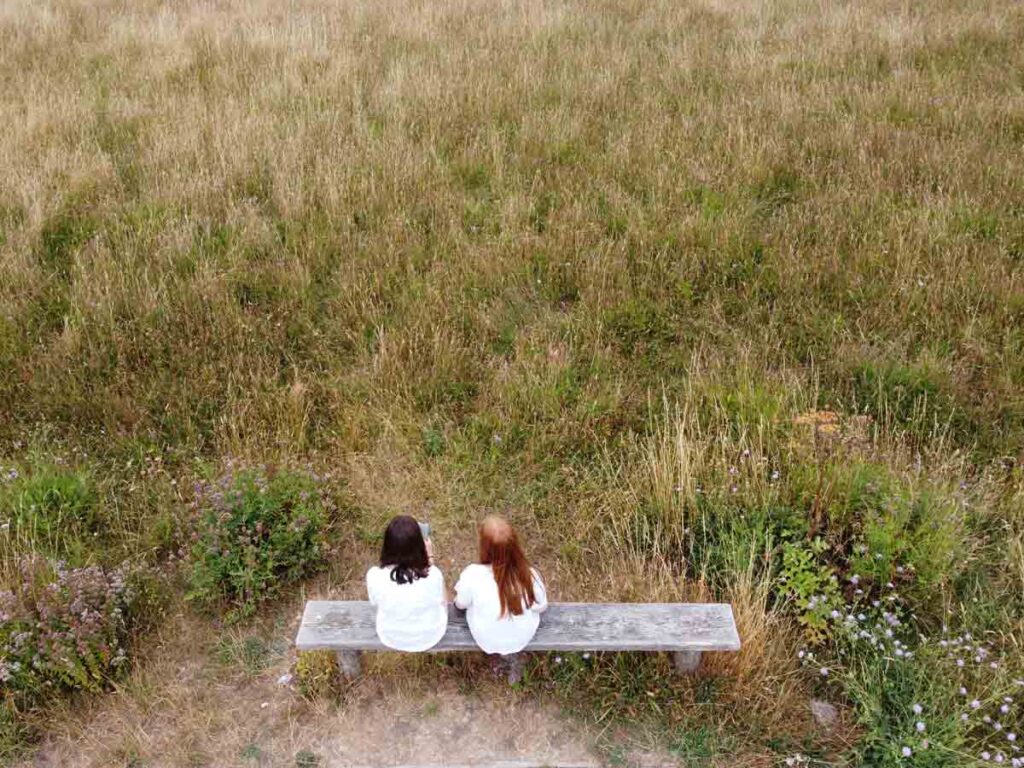Common Blue butterfly Photo: Butterfly Conservation
Scientists are asking for the public’s assistance in uncovering the effects of extreme weather on butterflies across Kent and Great Britain.
The Butterfly Conservation, a wildlife charity, is urging everyone across the country to participate in this year’s Big Butterfly Count (14 July – 6 August). By engaging in this activity, individuals can help scientists gain insights into how climate change is impacting our cherished butterflies.
15 minutes in a sunny location
Last year’s scorching temperatures, heatwave, and drought caused some of the plants that butterfly caterpillars rely on to wither and die. To assess the ongoing consequences of this extreme weather, we kindly request that you spend 15 minutes in a sunny location and make note of the number and species of butterflies you observe.
Butterflies serve as indicators of a healthy natural environment. With half of Britain’s butterfly species already facing extinction or near extinction, understanding their response to the changing climate is more crucial than ever. It’s essential to take action and safeguard these stunning insects.
Dr. Zoë Randle, Senior Surveys Officer at Butterfly Conservation, explains, “This is a critical year for the Big Butterfly Count. We know that past extreme summer droughts, such as those in 1976 and 1995, had a severe impact on butterflies, leading to a decline in numbers for the subsequent year that took almost a decade to recover. The data collected during this year’s Big Butterfly Count will provide valuable insights into the impact of the latest extreme weather and how we can enhance the protection of our beautiful butterflies. Given the persistent reality of climate change, we need people to participate more than ever before.”
The Big Butterfly Count, organized by Butterfly Conservation, is the largest citizen-science project of its kind. It not only contributes to significant scientific data collection but also provides an enjoyable opportunity to connect with nature, have fun, and spend time outdoors.

Butterfly count – Photo: Butterfly Conservation
Dr. Amir Khan, a Butterfly Conservation Ambassador and well-known figure, shares his enthusiasm for the Big Butterfly Count, stating, “Engaging with nature and observing butterflies is a remarkable experience. It not only brings joy and reduces anxiety but also allows you to make a significant contribution to crucial conservation decisions. Spending time in nature has been proven to benefit mental health, alleviating stress, boosting mood and energy, and enhancing happiness.”
Dr. Khan is not alone in promoting the healing power of nature. Sir David Attenborough, President of Butterfly Conservation, has consistently provided meaningful support to the Big Butterfly Count over the years. He emphasizes, “Observing a beautiful Red Admiral or Peacock butterfly while they feed on the flowers in my garden is a treasured experience that never fails to bring me immense pleasure.”
Other prominent figures, such as His Majesty King Charles III, Her Royal Highness Princess Charlotte, Butterfly Conservation Vice President Chris Packham (who is launching this year’s Big Butterfly Count), and even Winnie the Pooh, have also participated in or supported the Big Butterfly Count in recent years!
Whether you engage in the count with your loved ones or seek a serene moment of solitude, the Big Butterfly Count is a free, fun, and effortless activity that only requires 15 minutes of your time. It is open to everyone, regardless of age or location in the UK—whether you reside in a town, city, or countryside. No green space is too small—a backyard, a tiny terrace with potted plants, a public park, an allotment, or a country lane—all spaces are essential for exploration, observation, and reporting.
Last year, the count saw almost 100,000 participants all across the country, spending a combined total of 2.5 years counting butterflies in their gardens, local parks, and the countryside. The information collected through these efforts contributes to conservation projects, governmental policies, and aids other experts in their research and vital work to protect our planet.
Dr. Zoë concludes by saying, “We are aware that 80% of UK’s butterflies have declined since the 1970s, resulting in fewer butterflies than in the past. Even if you don’t spot any butterflies during your count, we still encourage you to report it! Understanding areas where butterflies are absent is as important as identifying their presence. So please, document your results and consider trying again on another day or at a different location. There is no limit to the number of times you can participate.”
David Forbes Nixon, OBE, Chairman of the DFN Foundation, sponsor of the Big Butterfly Count, expresses his excitement, stating, “The DFN Foundation is thrilled to once again support this eagerly anticipated Big Butterfly Count, backing Butterfly Conservation in their vital work to protect butterflies from extinction. Undershaw School, an initiative of the DFN Foundation, will take a leading role in launching this year’s count, hosting an engaging event that educates students and the local community about the importance of biodiversity and conservation through the enchanting world of butterflies.”
“Summer is the perfect time to relish the beauty of the UK’s outdoors, and I encourage everyone to embrace this year’s Big Butterfly Count. Whether with friends and family or embarking on a peaceful solo adventure to reconnect with nature, it will not only make you feel good but also prove invaluable in safeguarding butterfly species and protecting our environment for generations to come.”
The Big Butterfly Count will run from Friday, 14th July to Sunday, 6th August this year. To obtain more information and participate, please visit www.bigbutterflycount.org or download the free Big Butterfly Count app.

For more information, please go to www.dfnfoundation.org